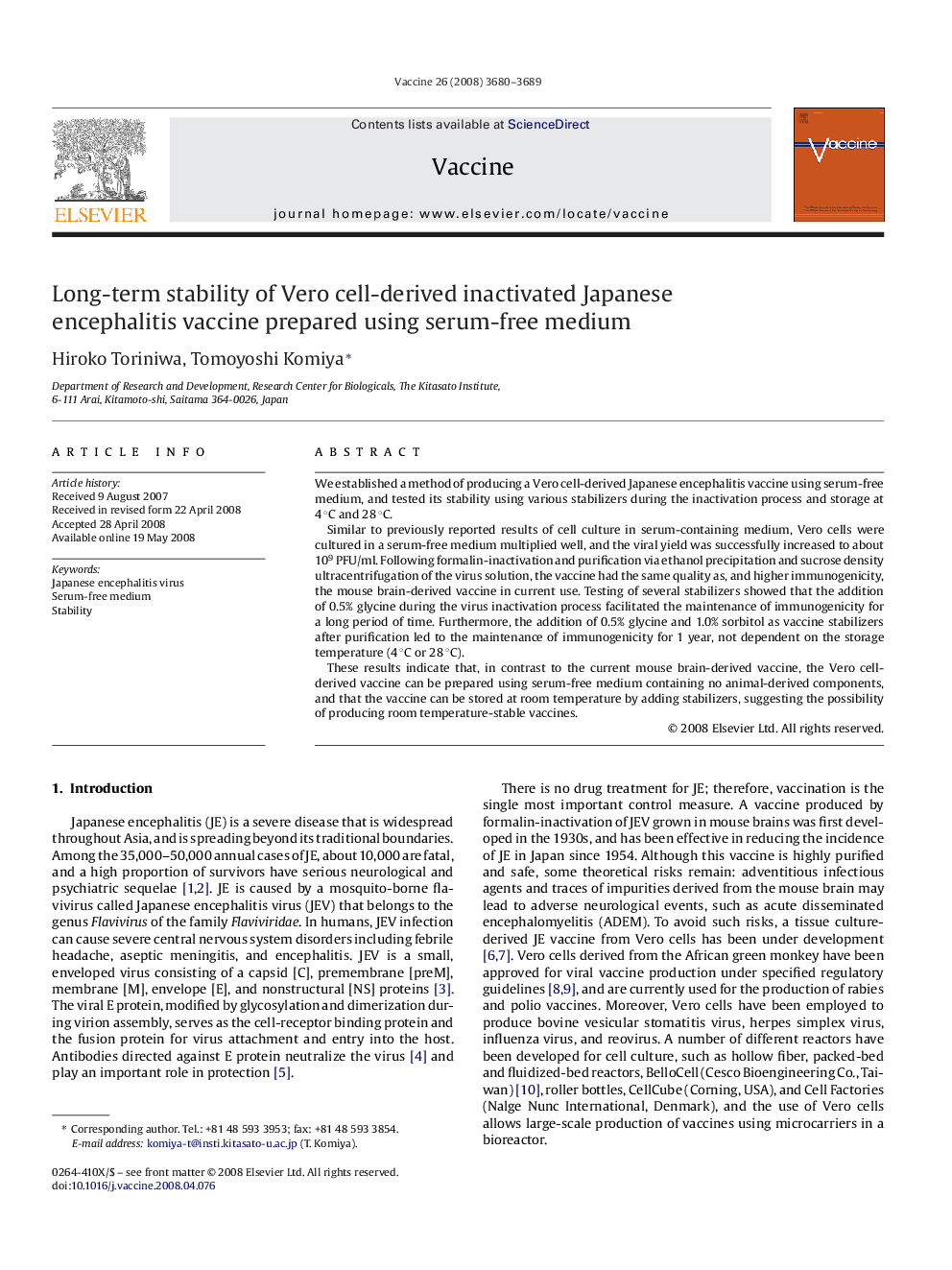| Article ID | Journal | Published Year | Pages | File Type |
|---|---|---|---|---|
| 2407683 | Vaccine | 2008 | 10 Pages |
We established a method of producing a Vero cell-derived Japanese encephalitis vaccine using serum-free medium, and tested its stability using various stabilizers during the inactivation process and storage at 4 °C and 28 °C.Similar to previously reported results of cell culture in serum-containing medium, Vero cells were cultured in a serum-free medium multiplied well, and the viral yield was successfully increased to about 109 PFU/ml. Following formalin-inactivation and purification via ethanol precipitation and sucrose density ultracentrifugation of the virus solution, the vaccine had the same quality as, and higher immunogenicity, the mouse brain-derived vaccine in current use. Testing of several stabilizers showed that the addition of 0.5% glycine during the virus inactivation process facilitated the maintenance of immunogenicity for a long period of time. Furthermore, the addition of 0.5% glycine and 1.0% sorbitol as vaccine stabilizers after purification led to the maintenance of immunogenicity for 1 year, not dependent on the storage temperature (4 °C or 28 °C).These results indicate that, in contrast to the current mouse brain-derived vaccine, the Vero cell-derived vaccine can be prepared using serum-free medium containing no animal-derived components, and that the vaccine can be stored at room temperature by adding stabilizers, suggesting the possibility of producing room temperature-stable vaccines.
